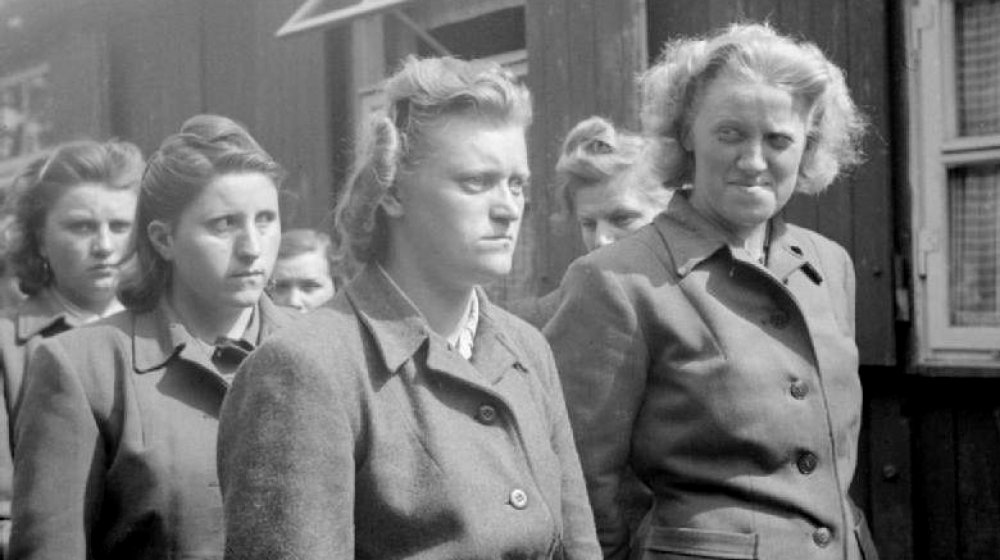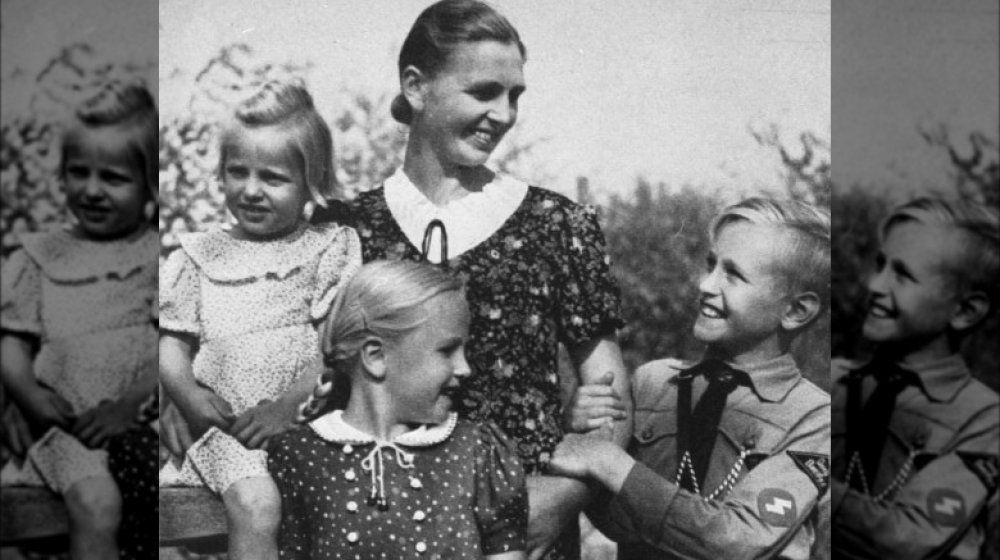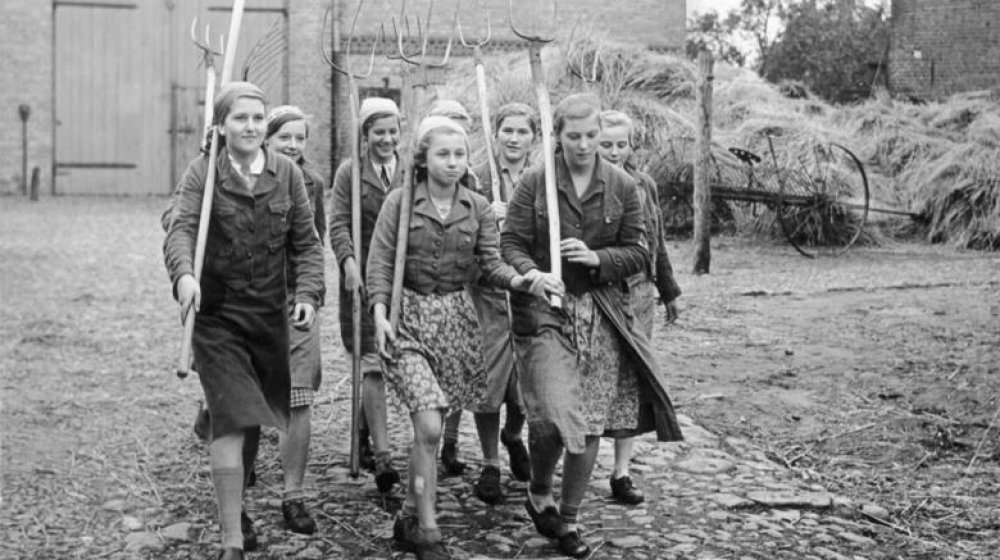What Life Was Really Like For Women In Nazi Germany
If you thought a genocidal regime premised on racial purity and superiority might seek to engender female empowerment, guess again. Racism and sexism go hand-in-hand, according to research cited by Live Science. And Adolf Hitler was so outrageously racist that his views on women could be summed up as "KKK," per the BBC, seeing as the fuehrer believed three Ks should guide women's lives: Kinder, Küche, and Kirche (Children, Kitchen, and Church). He wanted women to stay home, be fruitful, and multiply the Aryan race.
Hitler's KKK mindset shaped German education. Schoolgirls received lessons in housewifery, and were taught not to pursue higher learning. Because Hitler considered women illogical and incapable of objectivity, Nazi Germany barred them from becoming judges and/or serving on juries. Meanwhile, the Reichstag became a stag party. Though single women were permitted to work, they were urged to let jobless men occupy their spots instead. Additionally, the government provided "financial incentives to stay at home."
Nazi Germany told women to dress to unimpress, and eat for two
Nazi society was so big on female domesticity that it even encouraged women to look homely. The BBC explains that ladies were expected to fashion their appearance after German peasants. That entailed flat shoes, no pants, no short skirts, hair styled in a bun or plaits, no makeup, and conservative attire. Concerns that thin women might struggle during childbirth prompted a push for curvier German moms.
Because women were viewed through ovary-colored glasses, in the eyes of the law, producing Aryan babies took precedence over the mother's bodily autonomy. In 1933, Germany banned abortion except in cases where the mother had a perceived "defect." Women who were especially reproductive, then, received the Motherhood Cross. In what sounds like the obstetric Olympics, having four children scored someone a bronze cross, six won silver, and eight (or more) netted gold.
Marriage was still preferred, and financially rewarded. However, as the United States Holocaust Memorial Museum points out, "Aryans" were forbidden from marrying "non-Aryans" and anyone with disabilities couldn't marry at all.
German women committed and endured war crimes
WWII upended the domesticity Nazi Germany sought to impose on women. As detailed by the United States Holocaust Memorial Museum, women filled the jobs left by men who went to war, or even became auxiliary troops themselves. Women died fighting Russia's all-female Battalion of Death, or even became weapons of genocide, by working as guards at concentration camps.
While some German women committed atrocities, others became victims of them. In one particularly tragic chapter of the conflict, in 1945, Russia's Red Army engaged in the mass rape of German women. Playwright Zakhar Agranenko wrote that groups of nine to a dozen men took part in the assaults. Per the Guardian, "They raped every German female from eight to 80." Berlin's two main hospitals estimated that between 95,000 to 130,000 women were raped. Out of 100,000 cases, roughly 10,000 died, often because they saw life as a fate worse than death.


